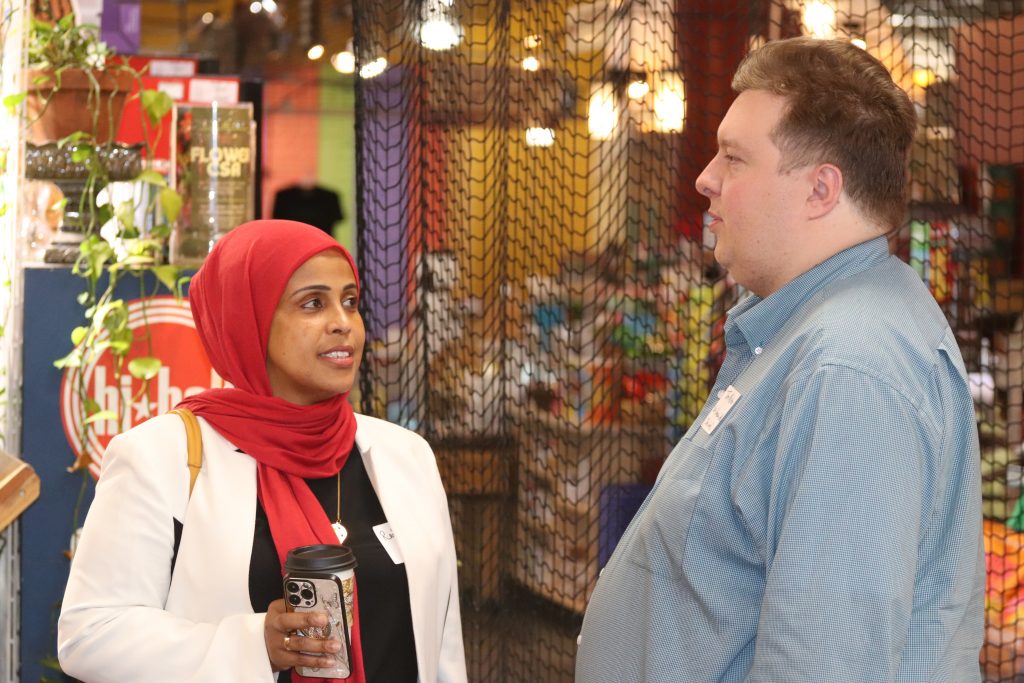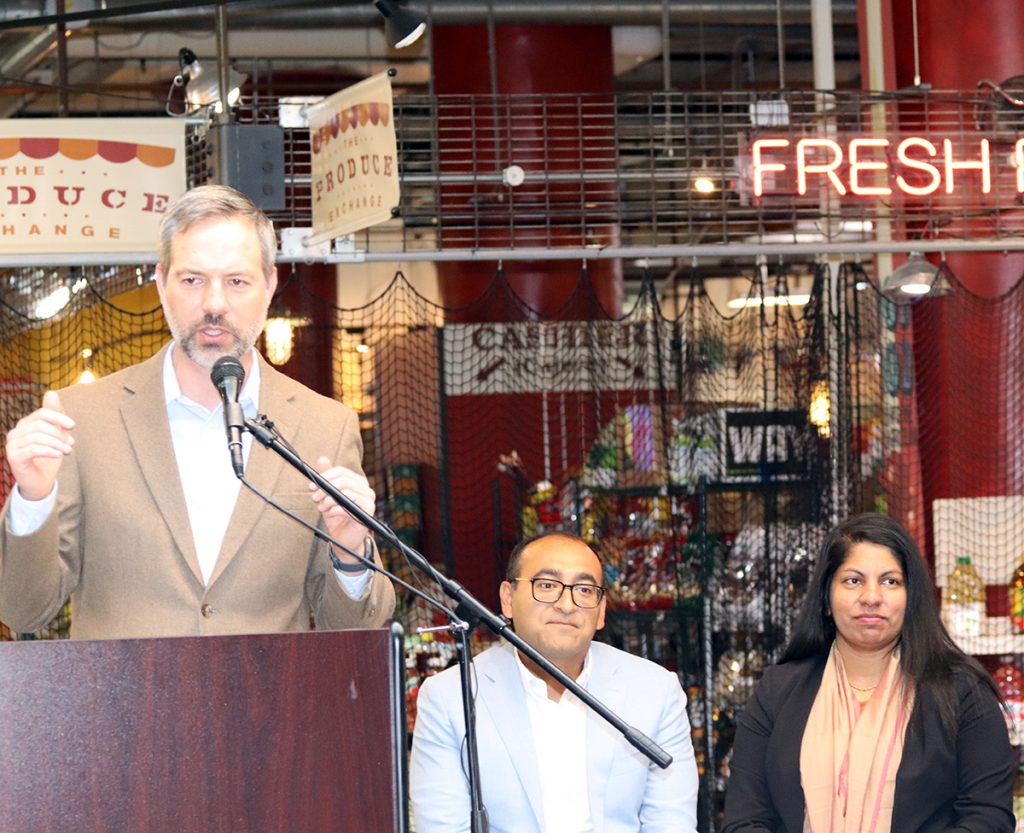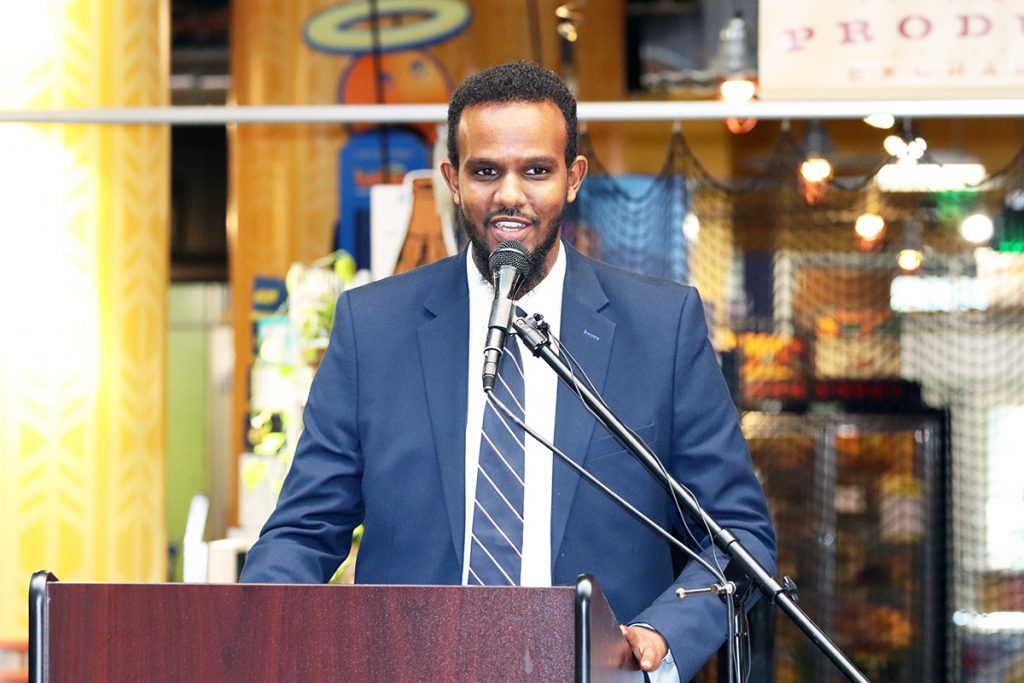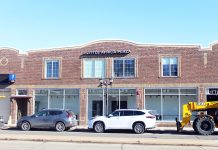
Since its establishment in 2020, Minnesota’s Office of New Americans has grown in popularity for spearheading efforts to integrate the state’s newest residents into the workforce by helping them navigate barriers to securing employment. But until recently, the office commonly known as ONA has been a temporary initiative operating under the state’s Department of Employment and Economic Development (DEED) and relying mostly on grants.
On Aug. 1, however, leaders from the government and the immigrant community gathered at Midtown Global Market in Minneapolis to celebrate ONA’s qualification for permanent funding, thanks to the One Minnesota Budget that Gov. Tim Walz signed into law on May 24.
DEED Assistant Commissioner for Immigrant and Refugee Affairs Abdiwahab Mohamed said the new permanent ONA will continue to work on expanding state resources into immigrant and refugee communities, so that they have a voice in policy recommendations. ONA will also work in collaboration with the state’s ethnic councils so that its work reflects the communities it serves.

“We will also continue to expand language access which is a major barrier for people to access state resources and to develop and provide for their families,” Mohamed said.
Offices for New Americans are becoming important channels for some state agencies and local governments across the country to assist immigrants and refugees to transition seamlessly into the foreign culture they encounter when they settle in the United States.
Several studies have shown that Minnesota’s immigrants have made significant impact in the state’s economy. An estimated 10% of Minnesotans are immigrants, and 7% of U.S.-born citizens have at least one immigrant parent, according to the American Immigrant Council. A DEED report revealed that between 2010 and 2020, about half of Minnesota’s growth in the labor force was driven by immigrants. They own 19,000 small business that generate $17.5 billion in household income, contributing $4.8 billion in federal, state and local taxes.

The One Minnesota Budget proposed and annual amount of $750,000 to support ONA. The funds include $250,000 per year for translation services to ensure non-English speakers are aware of employment opportunities. So far, ONA has established outreach programs that connected employers to protentional employees and successful ensured that they retained 300 employees, according to DEED.
ONA will also work in collaboration with Neighborhood Development Center (NDC), a St. Paul-based organization that trains entrepreneurs and supports their small businesses. DEED Commissioner Matt Varilek said the agency had confidence in NDC because it had already helped many of the business owners operating at Midtown Global Market.
“Lots of the folks that are in here got their start through the training and technical assistance and financing as well as space that make up the NDC model,” Varilek said.

Henry Jiménez, the executive director of the Latino Economic Development Center, which supports Latino entrepreneurs and small businesses in Minnesota, talked about the importance of cultivating immigrant-led businesses. Jiménez, who is a son of immigrants, said there was a lot of untapped potential within immigrant communities that is wasted due to the absence of offices like ONA and spaces like Midtown Global Market.
“The most important business corridor in Minnesota is not Hennepin,” he said. “It’s not downtown. It’s Lake Street.”
Anjuli Mishra Cameron, the chief executive officer of SEWA-AIFW, a nonprofit dedicated to ensuring total family wellness within the South Asian community spoke about his organization’s collaboration with ONA. Most recently, they worked together in the resettlement of Afghan refugees by helping them find employment and housing.
“What the Office of New Americans did was they saw these people as whole people and brought together coalitions of government [and] community organizations to really step up [and] pool resources [to] meet people where they were at.”










